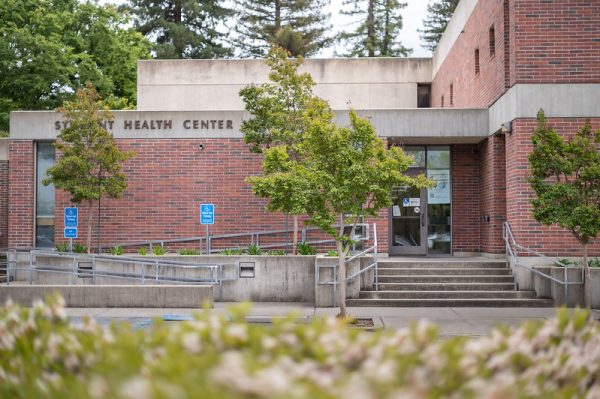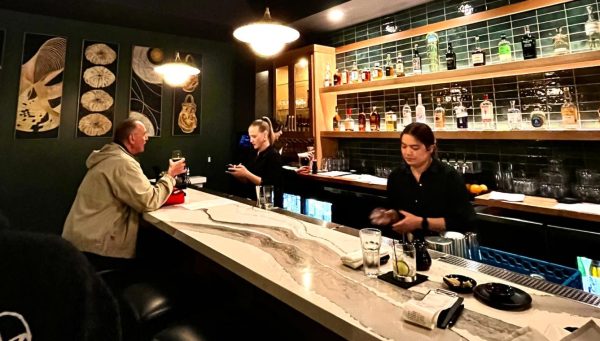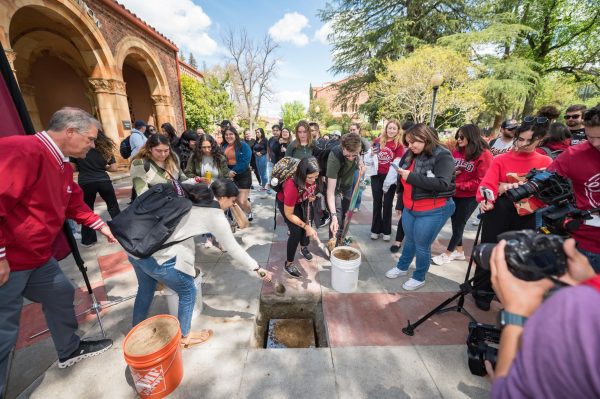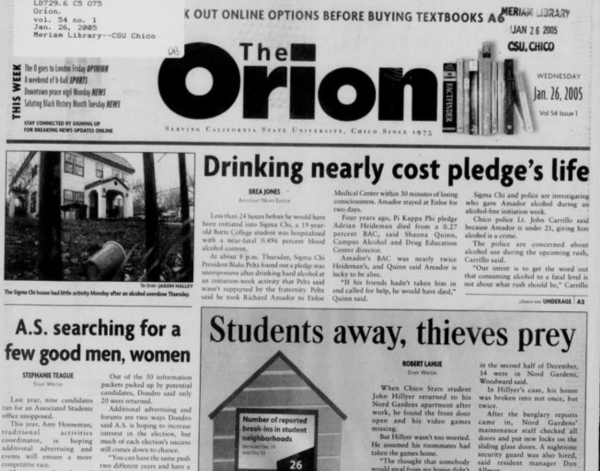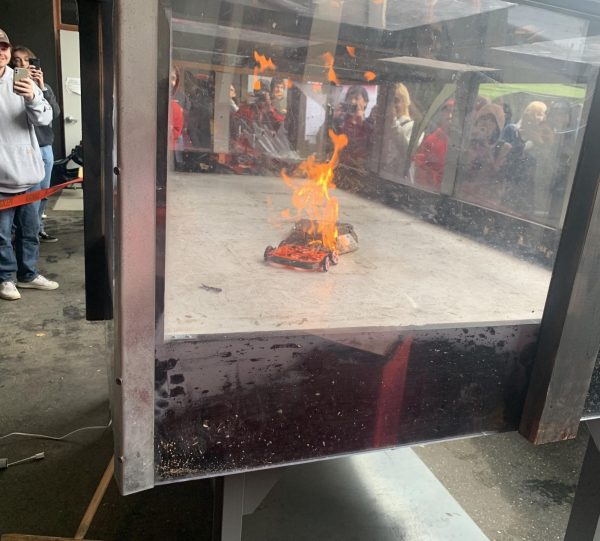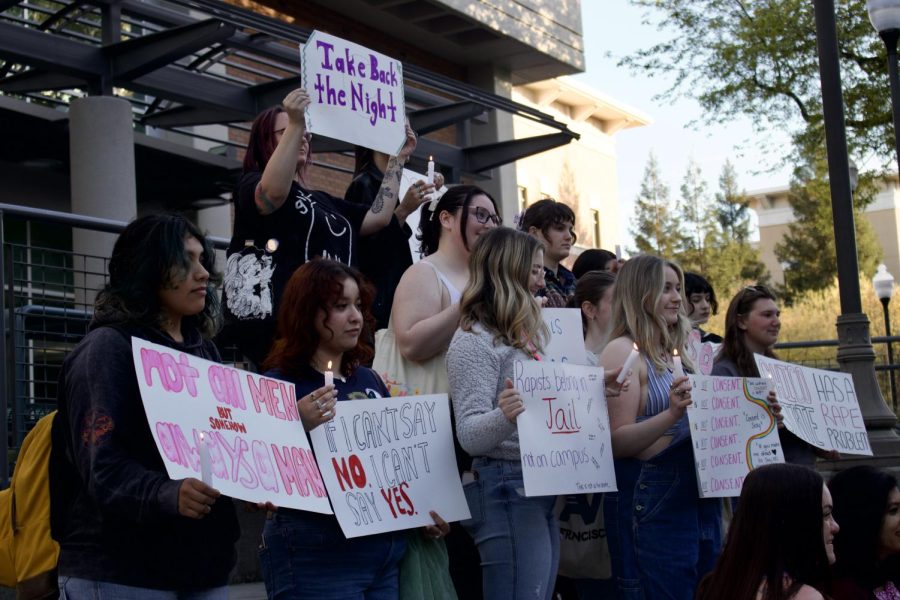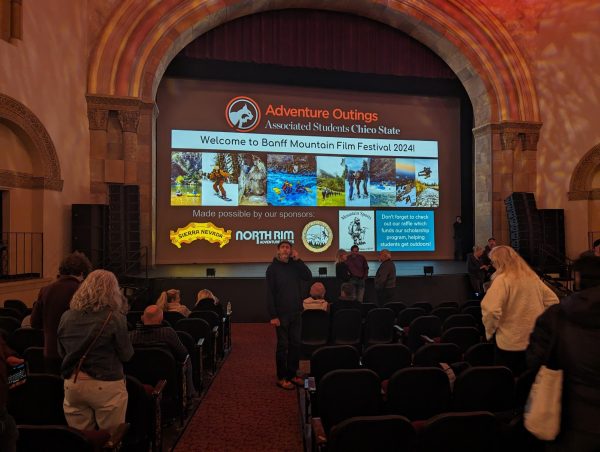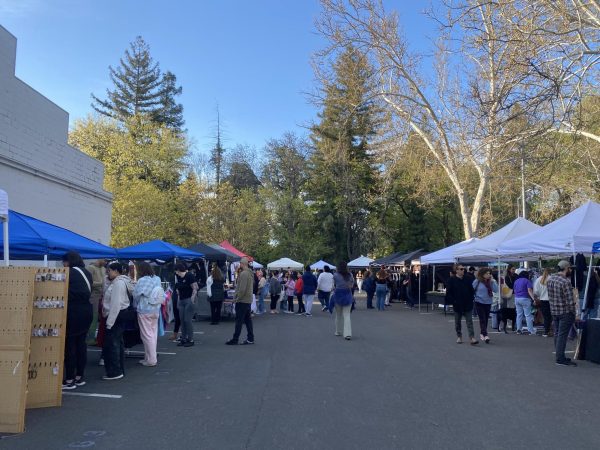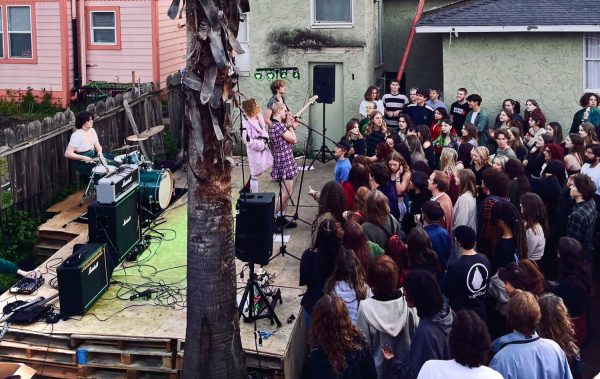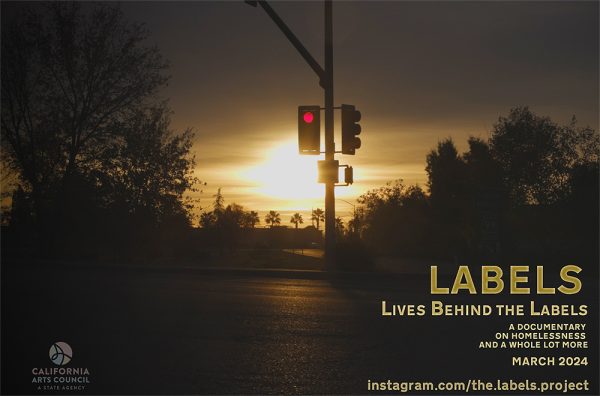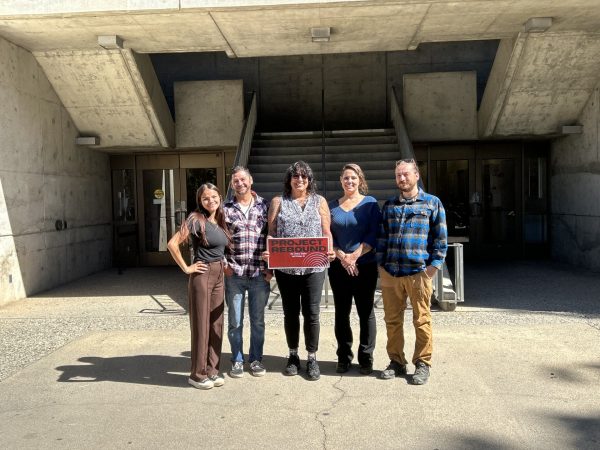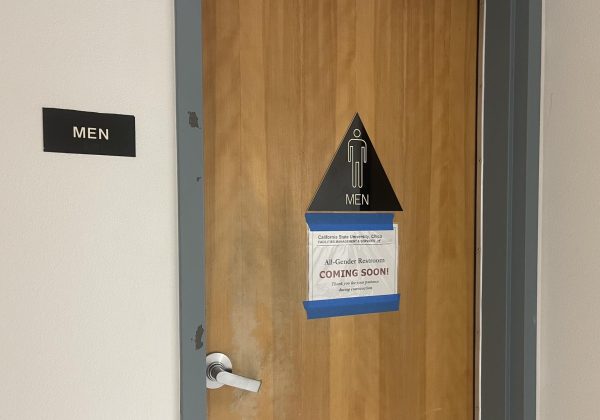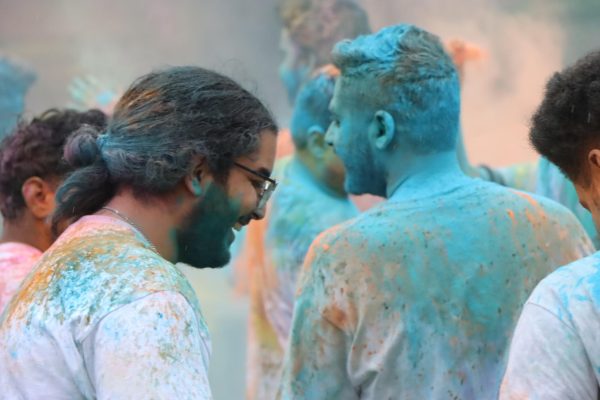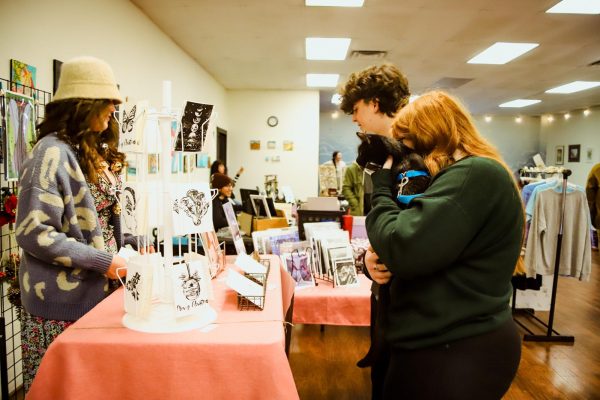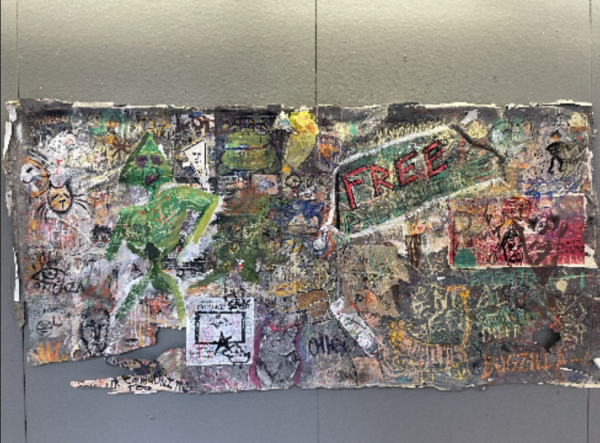Take Back the Night: ‘Chico State has a rape problem’
Participants holding up their signs in front of the Bell Memorial Union. Photo taken by Gabriela Rudolph on April 20.
The Gender & Sexuality Equity Coalition hosted the annual Take Back the Night march on April 20 to spark a conversation about rape culture in Greek life. The event began with a survivor speak-out and ended with a candlelight vigil and march through fraternity and sorority housing.
According to Our Wave, “For women in sororities, it was reported that they are 74% more likely to be raped than other college women.”
Take Back the Night began in 1972 at the University of Southern Florida, where a group of female activists marched around campus to protest sexual violence. Women in San Francisco and Philadelphia led their own marches the following years.
Then, in 1976, a Tribunal Council consisting of over 2,000 women met in Belgium to demand safety for women walking alone at night. Since then, Take Back the Night marches have occurred across the world.
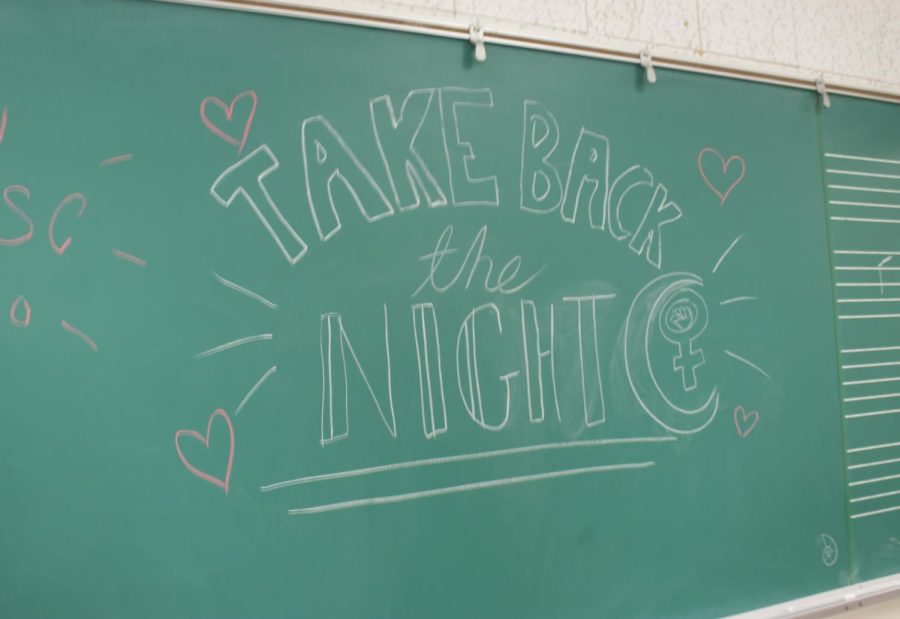
The event started at 5:30 p.m. in the Performing Arts Center 116 where survivors were given the opportunity to speak about their personal experiences with sexual violence within the Greek life community in an intimate and safe setting.
“[Rape culture] is so casual to the point where people think it’s normal, especially for a college campus,” GSEC Program Coordinator Sarah Bruno said.
The “Rape Barn” was a topic brought up by the speakers, which is a term used to describe the Delta Psi Delta house on 318 Hazel St. due to rumors of sexual assault allegations.
Many at the speak-out expressed their concern by how nonchalantly people talk about the “Rape Barn” and how there’s been no action by the university to address these rumors.
According to a video by KRCR, police have been called to the Delta Psi Delta house multiple times in the past 25 years for reports of rape and sexual assault.
Another discussion was about how Title IX training isn’t taken seriously by students, especially members of Greek life.
“It’s not even just men,” Bruno said. “Unfortunately, there are women who will just stay silent and are compliant to that situation.”
After the speak-out, participants were given resources from WellCat Safe Place and Callisto, a new tool on campus.
Professors Christine Leistner, Alex Wong and Shrija Dirghangi brought Callisto to campus as an alternative to Title IX by allowing students to report sexual violence. Reports go into the Callisto Vault and then are matched with other reports in order to identify repeat offenders. From there, survivors can get legal help to take the next step.
Callisto’s website states, “Over 90% of campus sexual assaults are committed by repeat offenders. However, most survivors don’t report.”
“It’s really important for us to empower survivors and create the sense that they’re not alone,” Dirghangi said.
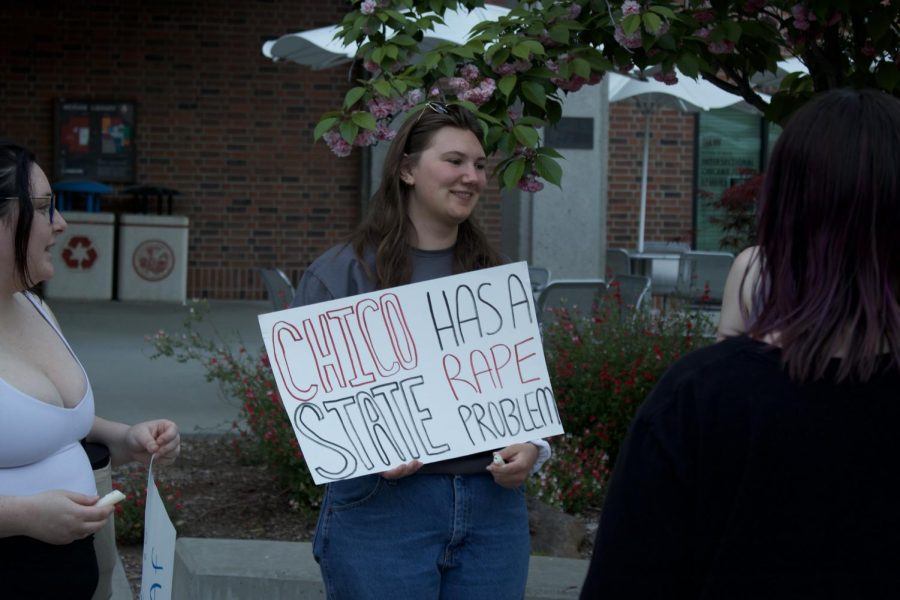
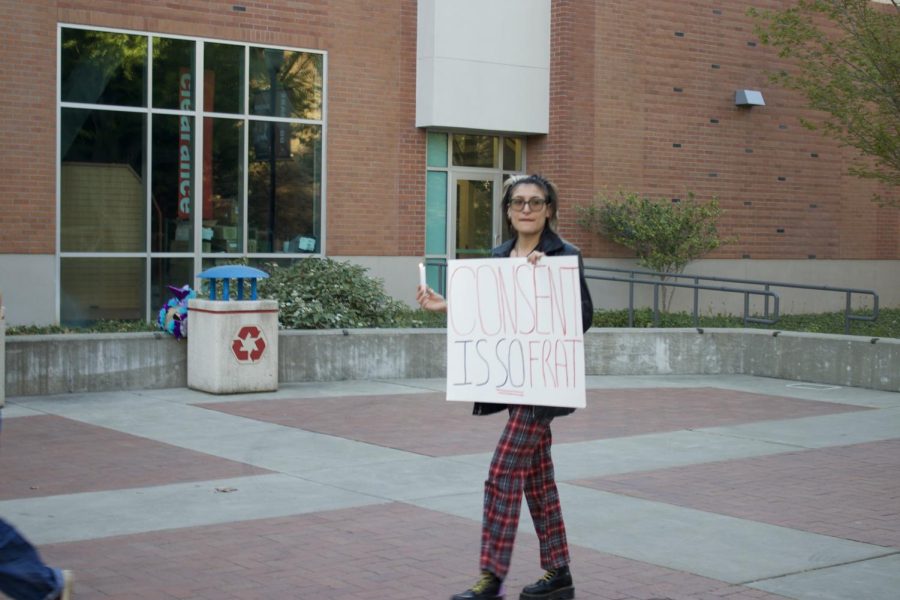
Around 7 p.m., participants picked up signs and lit candles to walk through Hazel Street and Ivy Street for a silent vigil and march. One of the signs said, “Chico State has a rape problem” another said “Because sexual assault should not be part of the college experience.”
The march was peaceful, with heads turning to read the signs. At one point people in a car shouted in support in front of Riley’s Bar & Grill. After 15 minutes, the group returned to campus and reflected on the march. GSEC reminded the group of resources around campus and to stop by the GSEC office in the Meriam Library 171 for support.
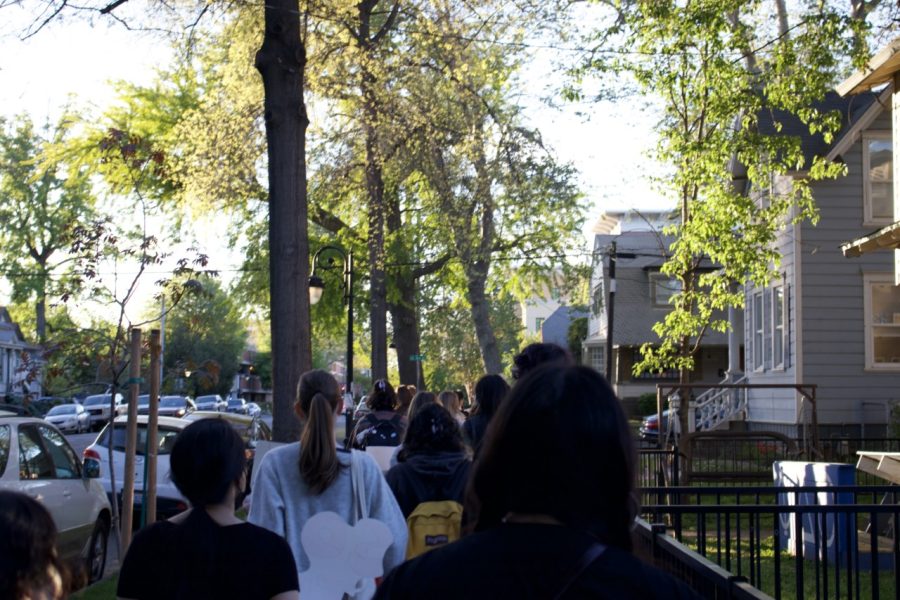
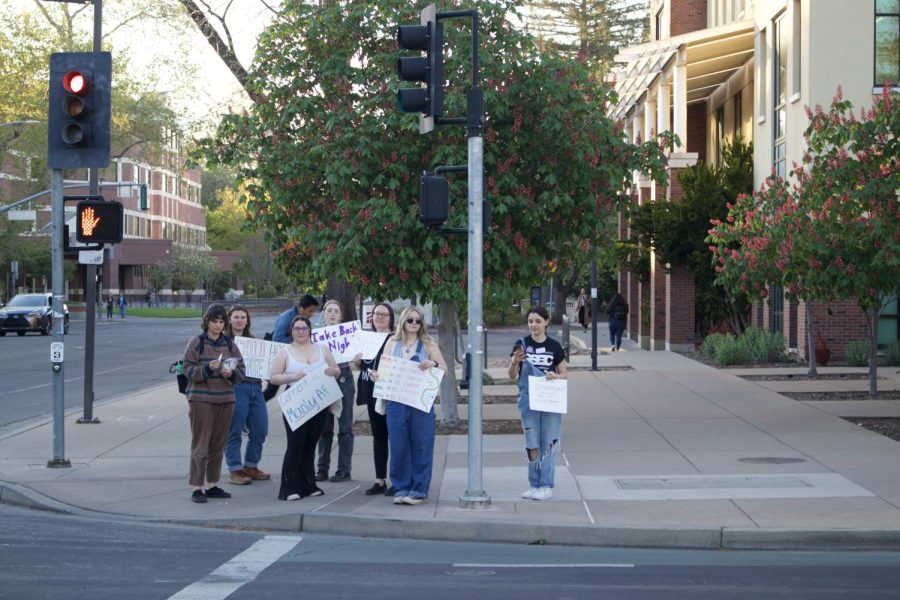
This event coincides with Sexual Assault Awareness Month for the month of April. Along with the march, GSEC also hosted the Clothesline Project on April 19 in Trinity Commons where students spoke up for themselves and victims through visual representations on clothes strung up for passerbyers to see.
Safe Place will be ending Sexual Assault Awareness Month with a pop-up exhibit from April 24 to April 28 in the Valene L. Smith Museum of Anthropology for International Denim Day to educate the public about sexual violence.
Gabriela Rudolph can be reached at [email protected]
